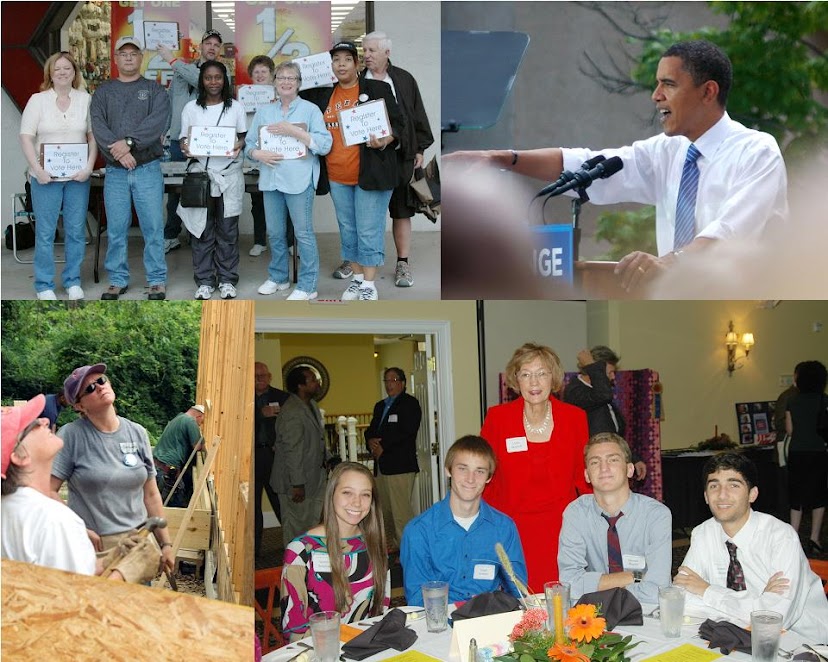From The Pilot
By J. Thomas Tidd - Sunday, August 1, 2010
At its conclusion, this commentary is about tolerance. The paragraphs between here and there are intended to provide a perspective on the human condition that will, hopefully, be found to be relevant.
Carl Sagan was the first, to my knowledge, to reduce cosmic events to an earth year in order to dramatize how minuscule has been the piece of cosmic time shared by humanity. Using his earth-year scale, the “Big Bang” from which the universe is believed to have arisen occurred at midnight on Jan. 1.
Not until the end of his cosmic year, 10:30 p.m. on Dec. 31, did the first humans appear; not until 17 seconds before midnight did humans learn to use stone tools; and in only the last 10 seconds was the first alphabet invented. Jesus was born just four seconds ago, and it was only one second ago that Columbus set sail for America. On the cosmic time scale, we have yet to turn the first page of the book of recorded history.
Time can be defined in one way as the measurement of change. As the earth rotates around its own axis and around the sun, we measure days and years; and, in the cycle by which all plants and animals are born and die, we measure life. These are objective or impersonal measures of time.
For us humans, time also has a subjective dimension. Virtually every item in our storehouse of memories has a temporal connection. Our childhood years seem endless; our declining years pass all too quickly. World War II is ancient history to the child but only yesterday to its veterans.
Time is also inextricably linked to what we call perspective — assigning relative importance to the issue or event being considered and assessing it in a temporal context. There is a tension between the ease of judgments based on the emotions of the moment and the difficulty of those that take account of the broad flow of human history.
More often than not, mankind opts for the former. Matters of current self-interest are equated with enduring righteousness; we make absolutes out of what eventually prove to be transitory political, economic, social or religious mores. That predilection is the root cause of most of the intolerance which, to date, has characterized human existence.
On the other hand, a civilized society cannot ignore the evils of the day on the ground that, in the long run, they will fade in significance. Some balance must be struck between viewing current events either in the passions of the moment or the calm of history.
Perhaps it comes to no more than this — we live in the present and have to make decisions based on present circumstances; but, recognizing that need, we should also recognize the need to be cautious of actions based on dogmatic assertions as to what constitute eternal virtues. If history can teach us anything, it is that more human misery has sprung from the possessors of rigid ideologies than from any other source.
This brings us around to the subject: intolerance.
It is a subject brought to mind by a recent essay by Errol Morris in The New York Times entitled, “The Anosognosic’s Dilemma: Some-thing’s Wrong But You Will Never Know What It Is.” The author defines the tongue-twisting “anosognosic” as one who suffers from a disability but is unaware of or denies the existence of that disability.
He states that, in the context of decision-making, it means one’s incompetence masks the ability to recognize that incompetence; or one’s stupidity protects one from an awareness of that stupidity.
While Morris cites a variety of psychological tests supporting the concept, its validity for the subject at hand is suggested by the increasingly hyper partisanship gripping this country — a partisanship that grows in direct proportion to the number and complexity of issues confronting us.
Whether from the right, left or center, the trend is to assert certainty where the matter at issue is inherently uncertain. Certainty springs from bias and, while none of us can escape that most universal of human traits, we are capable of confronting it — and to confront is to admit the possibility of error. Where intolerance exists, only from that admission can tolerance arise.
If we were to try very hard, perhaps we could bring ourselves to grant as much tolerance as we seek — and temper our own dogmatism to the degree we deplore that of others. Perhaps then, despite Morris’ theory, living with anosognosia need not be our fate —and, better still, we would then never need learn how to pronounce it!
J. Thomas Tidd is a retired attorney living in Pinehurst.

No comments:
Post a Comment